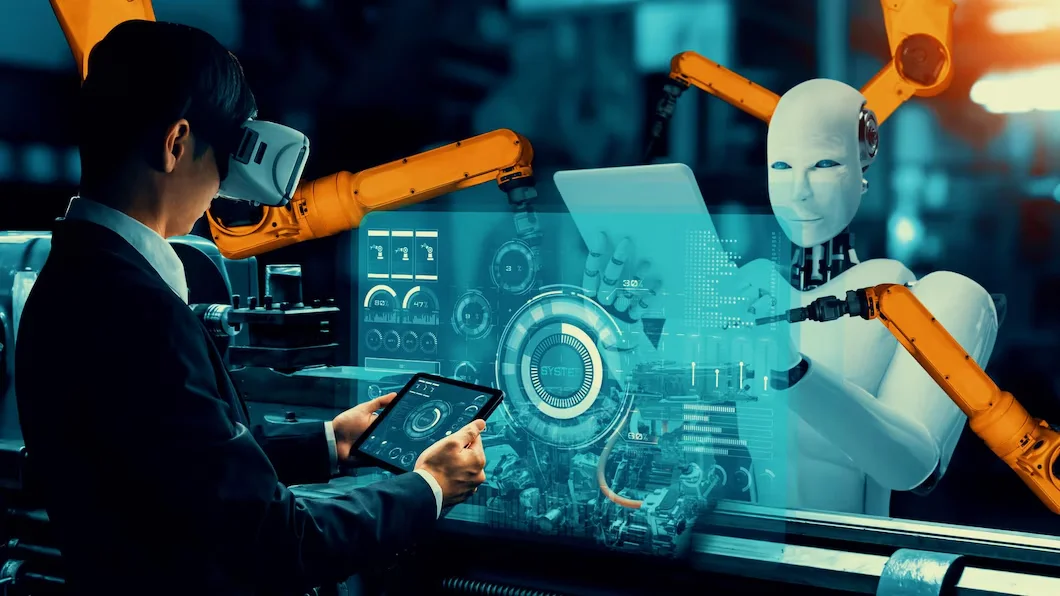The world is moving fast, and so are business processes. Every single factor needs to adapt to the changes and leave a mark. Technology is the primary catalyst for this transformation, but there's also a point of fear in mind when it comes to "Robots!"
Nevertheless, robots make the job easy, delivering efficiency and productivity quickly. The point is that they are not here to take away the everyday job tasks but just to streamline every bit of them. Here is where Robotic Process Automation (RPA) comes into play. According to a study by Deloitte, 78% of companies are implementing RPA and 16% are planning to do it soon.
In this guide, we'll understand the concept of robotic process automation, its benefits and applications, and how to avoid misconceptions about it.
A Gist of Robotic Process Automation
RPA stands for robotic process automation, wherein software robots perform highly repetitive tasks, freeing up human workers to focus more on strategic decisions. The bots can automate tasks such as filling out forms, moving files, sending emails, and more.
RPA can be used in certain business processes, such as IT, finance, healthcare, human resources, etc. When performed by a bot, the outcomes are faster and more accurate. Another remarkable thing is that RPA software is easy to implement rather than asking the IT team to change the infrastructure.

The Key Benefits of Robotic Process Automation
Here are the major ones:
1. Time Saving
One of the most common issues for most businesses is task repetition. Roboto process automation makes this job easy by automating all the mundane tasks with super-quick speed. This way, your team can focus on factors or tasks that matter the most for company growth.
2. Eliminate Human Error
Even if done precisely, humans make mistakes at some point. But this is no longer a concern with RPA. It eliminates human errors as bots are used to perform tasks with utmost precision. RPA is used primarily in manufacturing or pharmaceutical industries to fill medicines and avoid mishaps.
3. Consistency is the Key
Another critical benefit of robotic process automation is consistency. It's a nonintrusive technology that doesn't interfere with the core system's functioning and offers consistency in performing different activities every time.
4. Higher ROI – That's What Matters
Every organization wants to grow and puts forth the necessary efforts. In a nutshell, the goal is to improve ROI. RPA plays a vital role in increasing overall ROI. As previously stated, RPA enhances productivity, and its implementation provides significant data that can be used to make informed cost management decisions.
5. Top-Notch Security Level
Data security and privacy are the top priorities for organizations. To avoid challenges in the future, organizations must abide by security rules and regulations. Fortunately, RPA reduces security risks by incorporating all the top-class security features. This way, customers can be assured that their data is safe.
What are the Applications of RPA Across Different Industries?
RPA covers many domains, aiming to make business operations more accessible, faster, and efficient. Below are the examples of the potential applications of RPA:
-
Finance:
The first one we've mentioned is the finance sector, where the financial reports and account transactions, such as payables and receivables, are automated.
-
Customer Service:
Customer service is the backbone of any business, and good customer support is critical to its success. RPA is crucial in quickly responding to customer inquiries, reducing human error, processing orders, and much more.
-
Human Resources:
Robotic process automation is used in the human resource department to carry out specific tasks such as simplifying onboarding, automating payroll benefits, managing employee data, providing compliance training, etc.
-
Manufacturing:
Some tasks include quality control processes, inventory management, order creation, data migration, and other critical tasks.
Covering the Final Lines
Now you know the benefits of robotic process automation. But there's one thing that people are always afraid of: will RPA take over humans? Not! It's simply aiding the human workforce in acquiring higher efficiency and productivity. Thus, to stay in the know of the market, it's time for your business to implement RPA solutions and unleash its potential to the fullest.
To keep up with all the trending blog topics, visit our blog section right away!
You May Also Like:
Cognitive Automation and Robotic Process Automation: Key Differences
Cognitive Robotic Process Automation: Advantages and Disadvantages






